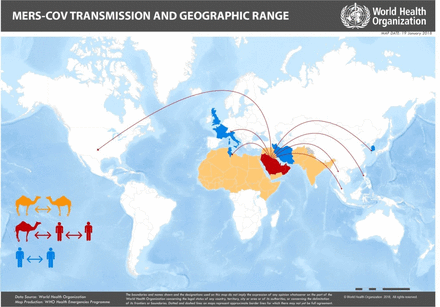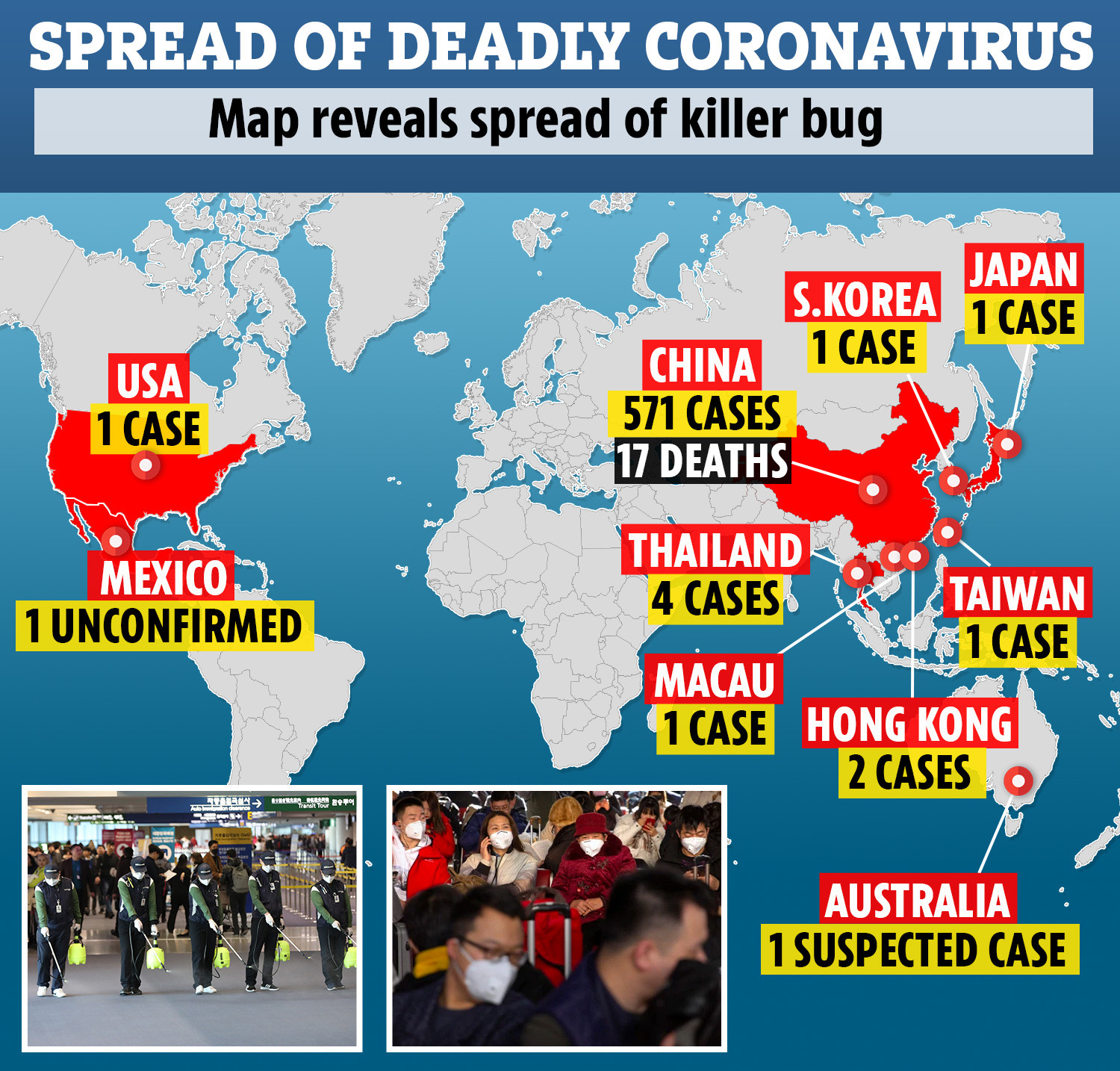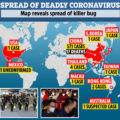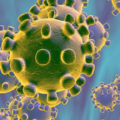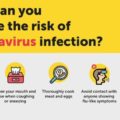Following recent deaths and the spread of a deadly strain of Coronavirus in many countries, it has become imperative to educate the public on the dangers posed by the virus and how to prevent infection. A coronavirus is a kind of common virus that causes an infection in your nose, sinuses, or upper throat. Most coronaviruses are not dangerous. Some types of them are serious, though. More than 475 people have died from Middle East respiratory syndrome (MERS), which first appeared in 2012 in Saudi Arabia and then in other countries in the Middle East, Africa, Asia, and Europe. In April 2014, the first American was hospitalized for MERS in Indiana and another case was reported in Florida. Both had just returned from Saudi Arabia. In May 2015, there was an outbreak of MERS in Korea which was the largest outbreak outside of the Arabian peninsula. People also died from a severe acute respiratory syndrome ( SARS ) outbreak in 2003. As of 2015, there were no further reports of cases of SARS. Both MERS and SARS are types of coronaviruses. But usually a coronavirus causes common cold symptoms that you can easily treat with rest and over-the-counter medication. Japan has confirmed its first case of pneumonia caused by a new coronavirus from China, the health ministry said earlier today.
What Is a Coronavirus?
Coronaviruses were first identified in the 1960s, but we don’t know where they come from. They get their name from their crown-like shape. Sometimes, but not often, a coronavirus can infect both animals and humans.
Is the corona virus contagious?
Most people will become infected with at least one coronavirus in their life. It is said that the mutating abilities of the coronavirus are what make it so contagious. To prevent transmission, be sure to stay at home and rest while experiencing symptoms and avoid close contact with other people.
Does coronavirus cause death?
Infection of humans with the severe acute respiratory syndrome coronavirus (SARS-CoV) results in substantial morbidity and mortality, with death resulting primarily from respiratory failure. While the lungs are the major site of infection, the brain is also infected in some patients.
Common Symptoms of Coronavirus
The symptoms of most coronaviruses are similar to any other upper-respiratory infection, including runny nose, coughing, sore throat, and sometimes a fever. In most cases, you won’t know whether you have a coronavirus or a different cold-causing virus, such as rhinovirus.
Can humans get coronavirus from dogs?
Most cases of canine coronavirus are contracted by oral contact with infected fecal matter. A dog may also become infected by eating from contaminated food bowls or by direct contact with an infected dog. Crowding and unsanitary conditions lead to coronavirus transmission.
What kills Coronavirus?
Most household disinfectants readily kill coronavirus immediately. Room temperature kills coronavirus within 48 hours. Carpeting is protective to the virus and the virus is able to survive in carpeting for at least 7 weeks.
How to protect yourself
There are currently no vaccines available to protect you against human coronavirus infection. You may be able to reduce your risk of infection by doing the following
- wash your hands often with soap and water for at least 20 seconds
- avoid touching your eyes, nose, or mouth with unwashed hands
- avoid close contact with people who are sick
For information about hand washing, see CDC’s Clean Hands Save Lives!
How to protect others
If you have cold-like symptoms, you can help protect others by doing the following
- stay home while you are sick
- avoid close contact with others
- cover your mouth and nose with a tissue when you cough or sneeze, then throw the tissue in the trash and wash your hands
- clean and disinfect objects and surfaces
Treatment
There are no specific treatments for illnesses caused by human coronaviruses. Most people with common human coronavirus illness will recover on their own. However, you can do some things to relieve your symptoms
- take pain and fever medications (Caution: do not give Aspirin to children)
- use a room humidifier or take a hot shower to help ease a sore throat and cough
If you are mildly sick, you should
- drink plenty of liquids
- stay home and rest
If you are concerned about your symptoms, you should see your healthcare provider.

